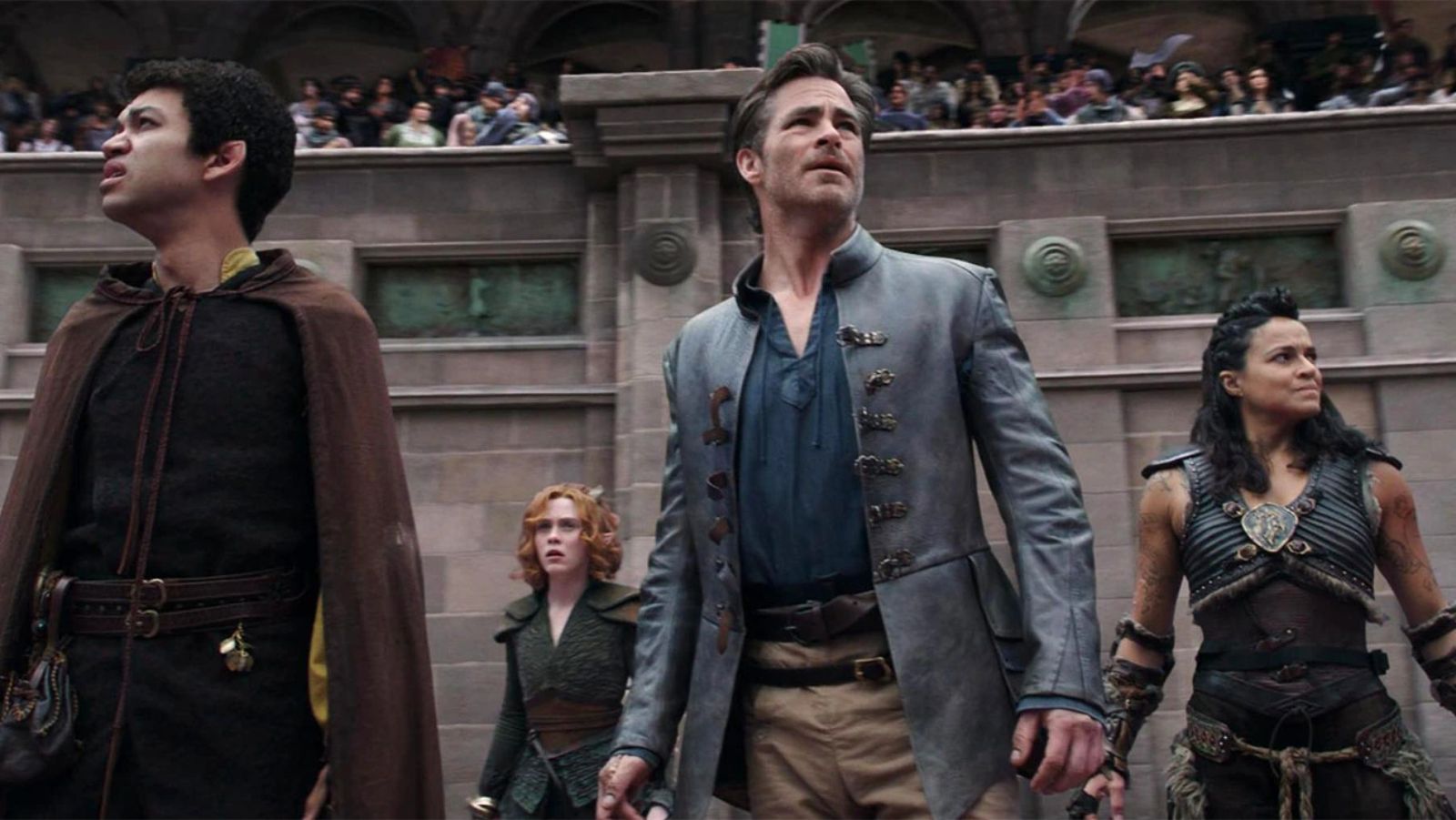The appeal of a Dungeons & Dragons campaign is in creating weird, wonderful characters of your own and throwing them into a wide array of quests: no two games can ever be the same. This is what I’m assured by friends who are into D&D, anyway, as playing any tabletop game with a convoluted set of instructions causes me to glaze over mentally––yes, dear reader, the following review isn’t written from an authoritative perspective as a member of the franchise’s enduring fandom. I have been informed by those more in the know than myself that the latest role-playing, game-themed effort from director duo Jonathan Goldstein and John Francis Daley (who previously gave us the appreciably greater Game Night) contains a treasure trove of Easter Eggs and winking references only the faithful will latch onto.
I highly doubt being able to spot individual nods to the game’s storied history would have helped change my mind on the film itself, the kind of post-Marvel blockbuster that repeatedly undermines itself for the sake of generating some cheap laughs. As with many recent MCU efforts, I was left baffled that the faithful are already embracing the movie with open arms, even as it acts like it’s above the thing they love, poking fun at the world it attempts building at every turn.
With the infinite possibilities that come from choosing a campaign around which to model their narrative, Goldstein and Daley (alongside co-writer Michael Gilio) have made the curious decision to borrow liberally from Sam Raimi’s far superior Army of Darkness, albeit watering its more grotesque horror-comedy aspects down to a family-friendly PG-13. What follows is a movie where the most inspired moments are those most directly riffing on gags from that Evil Dead threequel: a set of heroes either ignore or forget the basic set of rules they’ve been given to succeed on their quest––right down to direct visual allusions, such as the face of bard Edgin (Chris Pine) contorting and melting like that of the possessed Ash. Dungeons and Dragons would have benefitted from the macabre wit synonymous with Raimi, but neither the gags nor physical comedy rise to the level of his Looney Tunes-meets-Texas Chainsaw aesthetic; the level of joke-writing here largely revolves around characters reacting deadpan in a “so that just happened” manner, often poking fun at the inherent ridiculousness but without the punchlines to make any knowing sense of humor land.
Nowhere is this more apparent than an extended interlude––perhaps the first sign Honor Among Thieves is a tad on the convoluted side––where Michelle Rodriguez’s Holga detours to a town reminiscent of Hobbiton and we meet her ex, a dwarf, played in a distracting cameo by a multiple Oscar nominee who has been CGI’d down to size. The entire scene has no jokes beyond its lazy visual sight gag, but adds in multiple pauses for laughter after every incidental line under the assumption audiences will be rolling in the aisles. Oddly, a brief callback in the closing act gets more comic mileage out of a single glance from Rodriguez than this sequence does when it fleshes out the concept.
Which isn’t to say this fantasy take on the heist movie is entirely without comic charm. A sequence almost directly following that is the most successful at paying tribute to Raimi, as the tribe bring various skeletons back from the dead to seek advice on their quest––with some gloriously cartoonish practical effects utilized to make them rise from their graves. It’s in sequences like this where the repertoire between a disparate band of characters, which also includes Justice Smith’s sorcerer Simon and Sophia Lillis’ shapeshifting Doric, is best taken advantage of, given a fantastical-yet-simple comedic concept and allowed to run with it.
That the rest of the film seldom hits highs like this is through no fault of the cast; this is a fantasy first and foremost, no matter how much its winking nature may suggest it wants to be conceived as a $150 million tentpole comedy. It’s a tone that clashes with various heartfelt storylines, from Edgin wanting to regain his child from the evil clutches of Forge Fitzwilliam (Hugh Grant, now seemingly set to be eternally typecast as his Paddington 2 villain), to Simon’s own anxieties about becoming a powerful wizard, stories difficult to be treated seriously when the screenplay insists on undermining the lore within this world at every opportunity. It’s not that the cast doesn’t treat this material reverentially––in certain action set pieces performers like Rodriguez prove to be significantly above the level the simplistic fight-staging requires––but that the filmmakers are trying to have their cake and eat it too: seeking to win over fans old and new by suggesting it’s ridiculous to take any of this seriously.
If nothing else, Dungeons & Dragons: Honor Among Thieves made me relieved that Peter Jackson got to make his Lord of the Rings trilogy long before the Marvel era, when seemingly all franchises have to slyly poke fun at themselves in order to be greenlit.
Dungeons & Dragons: Honor Among Thieves opens in theaters on March 31.

